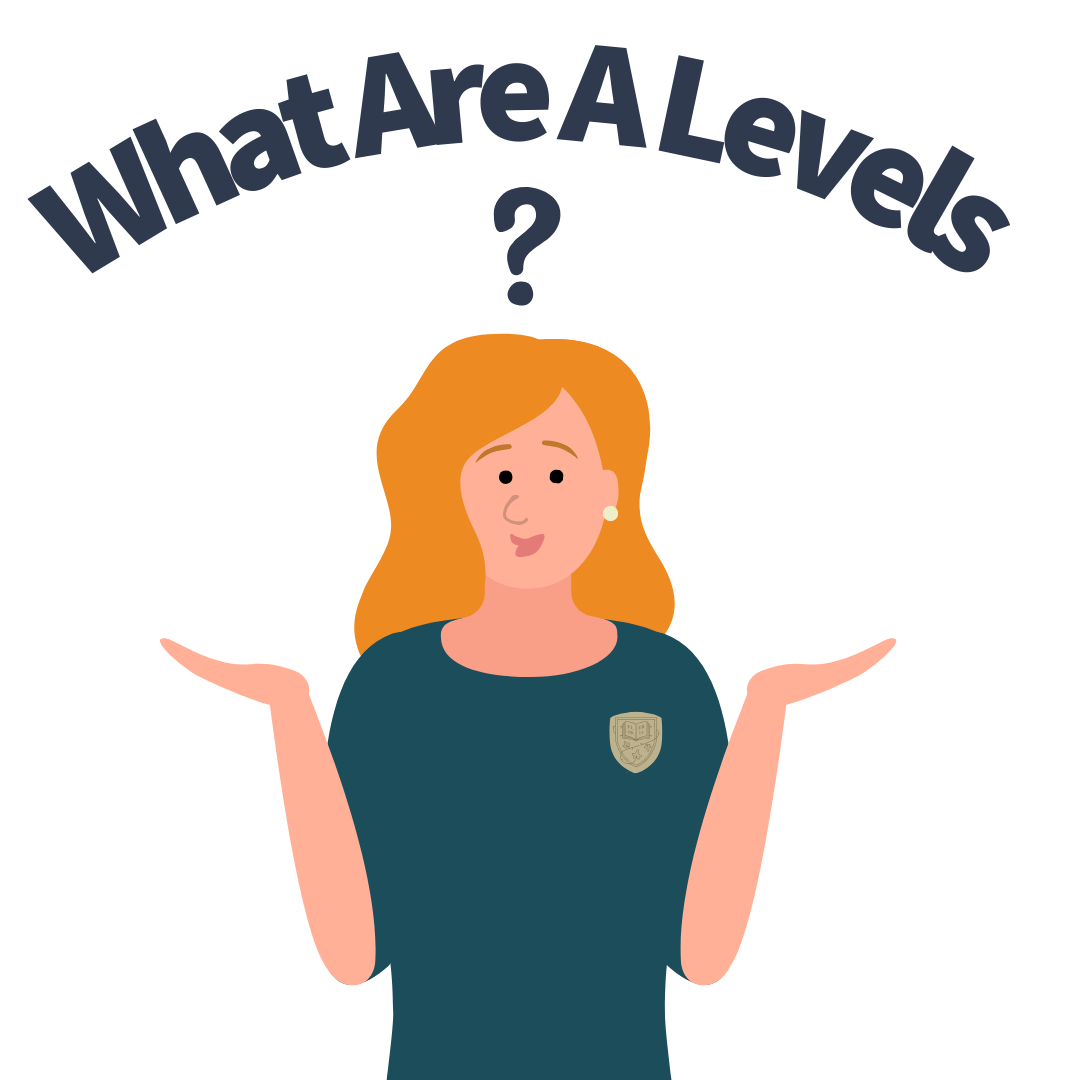Expert Insights
What are A-levels?
Published 10th May 2024 by Alastair

Comprehensive Guide to the UK Education System in 2024
Transitioning from the realm of GCSEs to the next stage —A Levels— becomes a critical milestone for UK students aspiring to enter university. These advanced qualifications hold immense importance, serving as the bridge to higher education and future career paths. In this article, we delve into the finer details of the A Level qualification, examining its structure, significance, and impact on academic and professional trajectories.
A Levels, formally known as Advanced Level qualifications, play a pivotal role in the UK education system, marking a significant progression from GCSEs. Typically undertaken by students in Year 12 and Year 13 of secondary education, A Levels offer a specialised and rigorous academic path. Lasting for a duration of two years, typically beginning at age 16 or 17, A Levels provide students ample time to delve deeply into their chosen subjects, fostering a comprehensive understanding and honing vital skills for future academic pursuits or career aspirations.
If you want to learn more about what A Levels offer you over other higher-level certifications, our article on the Differences between IB and A Levels thoroughly compares both qualifications.

As explained in the section above, A Levels provide a more traditional academic pathway, often favoured by universities for admission. Therefore, if you are looking to follow a more traditional academic career path, then A Levels would be a good option.
For students with different learning styles or career ambitions, alternative qualifications available in Year 12 and 13 present compelling options. The International Baccalaureate (IB) Diploma Programme, for instance, offers a holistic education with a strong emphasis on critical thinking, intercultural understanding, and global engagement. You can find out more about the difference between IBs and A Levels in this article.
Similarly, vocational qualifications such as BTECs (Business and Technology Education Council) provide hands-on, practical learning experiences tailored to specific industries, appealing to students with a preference for applied learning.
Furthermore, apprenticeships offer an alternative route for students keen on gaining practical work experience while studying towards a recognised qualification. Through apprenticeship programmes, students can acquire valuable skills and industry-specific knowledge, paving the way for a smooth transition into the workforce upon completion.
Ultimately, the decision between A Levels and alternative qualifications hinges on individual preferences, career aspirations, and learning styles, with each option offering distinct advantages tailored to diverse educational and professional pathways.
Students usually enter A Level courses after completing their GCSEs or equivalent qualifications, however, there are no explicit requirements to complete GCSEs to take A Levels. While specific requirements can vary depending on the institution, students are generally expected to have attained a certain level of academic achievement in GCSEs or an equivalent qualification, often including passes in English and Mathematics. These GCSE grades required for entry to A Level courses commonly range from grades 9-4 or A*-C.
Transitioning from GCSEs to A Levels often involves a significant increase in difficulty for many students. This transition is marked by the heightened expectations of independent study, deeper conceptual understanding, and more rigorous assessment methods characteristic of A Level education. As a result, some students may experience challenges adjusting to the academic demands and pace of A Level study initially. However, with dedication, effective study habits, and support from teachers, students can successfully navigate this transition and excel in their A Level courses.
You can find a more comprehensive breakdown of A Levels you can take in our article on The Hardest A Levels in 2024.
However, the top 10 most popular A Level subjects are:

If you’re up for a challenge and are curious on what the more difficult A Level subjects are, you can find that out here.
Here are some tips to guide you through the process:
By carefully considering your interests, university requirements, and career goals, you can choose the right A Level subjects that will set you on the path to academic success and future career fulfilment.
Examinations:
A significant portion of A Level assessment is conducted through written examinations, which are typically held at the end of the two-year course. These exams assess students' ability to recall and apply knowledge, analyse information, and demonstrate critical thinking skills. Examinations may consist of essay-style questions, short-answer questions, multiple-choice questions, and practical assessments, depending on the subject.
Coursework:
In addition to examinations, some A Level subjects may include coursework components, which allow students to demonstrate their skills through practical tasks, research projects, or extended essays. Coursework assessments provide students with opportunities to showcase their understanding of concepts, apply theoretical knowledge to real-world scenarios, and develop essential skills such as research, analysis, and problem-solving.
Now, here's a table outlining the A Level grading system:
| Grade | | Percentage | | Description |
|---|---|---|
| A* | 90-100 | Outstanding |
| A | 80-89 | Excellent |
| B | 70-79 | Good |
| C | 60-69 | Satisfactory |
| D | 50-59 | Adequate |
| E | 40-49 | Limited |
| U | Below 40 | Ungraded |
The grading system ranges from A* (the highest grade) to U (ungraded). Grades A* to E are considered passing grades, with A* and A representing the highest levels of achievement. The grading criteria are based on the percentage of marks obtained in examinations and coursework components, with specific grade boundaries set by examination boards for each subject.
Overall, the A Level grading system provides a comprehensive assessment framework to evaluate students' academic performance and achievements across their chosen subjects.
On The Day
A-level Results Day follows a familiar pattern each year. Usually, results day is on or around the 15th of August, with results accessible from 06:00am onwards.Students usually collect their results from their school or college, but many schools and colleges make A-level results available online, as well as via email or post.
Depending on the student’s performance, here is a breakdown of the different types of offers Universities, as well as alternative routes should the student not achieve their expected grades:
Conditional and/or Unconditional Offers
Conditional offers are made by universities to students contingent upon them meeting certain conditions, usually specific A-level grades or other qualifications. For example, a university might offer a student a place on a course with the condition that they achieve grades AAB in their A-level exams. Conditional offers are common and are based on predicted grades or achieved grades at the time of application.
Unconditional offers, on the other hand, are offered regardless of the student's exam results. This means that the student has already secured a place on the course without having to meet any further conditions related to their grades. Unconditional offers are less common and are typically made to students who have already achieved the required grades or have demonstrated exceptional academic performance.
It can also be challenging for those who don't achieve their expected grades, prompting the exploration of alternative options like re-sitting exams or entering the Clearing process facilitated by UCAS.
Clearing
Clearing is a process facilitated by UCAS that provides students who haven't secured a university place with an opportunity to find available courses. It typically opens in July and continues through to September. During clearing, students can search for courses with vacancies and contact universities directly to discuss their options. Once a suitable course is found, students can add it as their Clearing choice through UCAS Track.
Regardless of the outcome, A Levels result day signifies a transition to the next stage of life, whether it be university, employment, or further education. It's a day of reflection and decision-making as students look towards the future with optimism and determination.
Some opt for vocational training or apprenticeships to gain practical skills and industry-specific qualifications, providing direct pathways to employment.
Entering the Workforce
Others may decide to enter the workforce directly, exploring entry-level positions, internships, or trainee programmes in various sectors.
Gap Year
Some students take a gap year to travel, volunteer, or gain life experiences before committing to further education or employment, providing opportunities for personal growth and exploration.
Ultimately, the choice depends on individual preferences, personal circumstances, career aspirations, and long-term objectives.
A Levels are divided into two parts: AS-Levels and A Levels. A-Levels are the combination of the whole qualification taken over the two years, while AS-Levels would be the qualification for just the first year.
This is why it is possible to drop a subject after the first year, and students typically choose four subjects in year 11 and drop one subject after the end of year 12.
After going through a reform in 2015, the format of A Levels and AS Levels changed. The Student Room provides a comprehensive article that breaks down how A Levels are structured.
There are no requirements to study GCSEs before A levels. Otherwise, international students, for example, would have to study for an extra two years!
Most students typically take A Levels through their school or sixth-form college and will naturally transition from GCSEs to A Levels. Older students, or students who have not taken their GCSEs, will typically find a local education centre or sixth form college to apply for A Level qualifications.
Effective time management, prioritisation, and seeking support from teachers or tutors can help balance the workload of multiple A-level subjects.
Ivy Education have also created a GCSE Revision Guide to help students handling their workload. Yes, this isn’t an A Level Guide, but the tips are completely transferrable! Read it here.
A-levels offer depth of study, flexibility, and are widely recognized by universities, providing pathways to higher education and career opportunities.
We offer tailored support, including subject-specific tutoring, exam preparation, and academic guidance to help students excel in their A-level studies. If you are interested in our full range of services, please contact us today!
While online resources can be valuable, personalised tuition provides individualised support, feedback, and guidance tailored to students' specific learning needs and goals.
Ivy Education offers A Level specialist tutors who have had years of experience in helping students get into the the world’s top academic institutions.
They provide a rigorous and versatile educational experience, fostering critical thinking, subject expertise, and transferable skills crucial for success in higher education and the workforce.
With their international recognition and direct pathways to university entry, A Levels offer students opportunities to pursue their passions, specialize in their chosen fields, and unlock a world of career possibilities.
For those seeking personalised support and expert guidance to excel in their A Levels, Ivy Education is here to help. With Ivy Education's dedicated tutors, specialist consultants, and dedicated resources, students can confidently navigate their A-level studies and achieve their academic goals.
We are experts in providing bespoke online and in-person one-to-one A-Level tutoring.
Enquire Today










